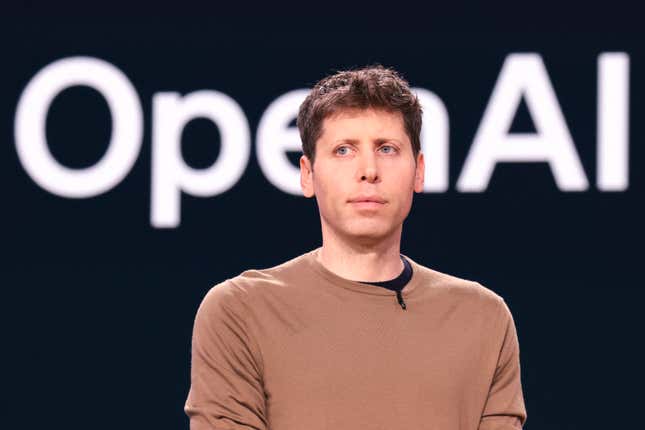
In This Story
On the heels of a $6.6 billion funding round, OpenAI has secured access to billions more from some of the biggest global banks.
The ChatGPT-maker said in a blog post Thursday that it has secured a $4 billion credit facility with JPMorgan Chase (JPM-1.03%), Citi (C-1.68%), Goldman Sachs (GS-1.29%), Morgan Stanley (MS-1.00%), Santander (SAN-4.51%), Wells Fargo (WFC-0.86%), SMBC (SMFG-1.15%), UBS (UBS-1.61%), and HSBC (HSBC-2.97%).
That gives the startup, which is now valued at about $157 billion, access to $10 billion in liquidity, which will allow it to invest in new initiatives and continue to scale its business, the company said.
“This credit facility further strengthens our balance sheet and provides flexibility to seize future growth opportunities,” said Sarah Friar, OpenAI’s chief financial officer. “We are proud to have the strongest banks and investors in the world supporting us.”
Credit facilities are a type of loan agreement that allow borrowers to borrow money without having to reapply for a new loan each time.
The new funding comes amid a spate of executive resignations and reports that OpenAI is spending more than it’s making. The company is also reportedly considering restructuring its nonprofit status to attract investors. Chief executive Sam Altman reportedly has assured employees, however, that he doesn’t plan to get a “giant equity stake” in the company.
OpenAI holds the spot of the third-most valuable private company in the world, behind only TikTok parent ByteDance and Elon Musk’s SpaceX, according to market research firm CB Insights. A deal allowing employees to sell stakes in the company late last year valued OpenAI at $86 billion.
The startup has partnered with a number of the same banks that are providing it with credit facilities to help introduce its Large Language Models (LLM) into their firms. Morgan Stanley, which was OpenAI’s first official wealth management partner, in July began rolling out a genAI assistant, Debrief, built on GPT-4.
JPMorgan also introduced a new AI assistant powered by OpenAI in August, which is designed to help employees with daily tasks, including drafting emails and reports. Goldman Sachs’ generative AI platform also uses OpenAI’s GPT-3.5 and GPT-4 models — and others — to support the work of its developers.
ChatGPT already has 250 million weekly users, and has driven hype around AI chatbots since its release in November 2022. But its ambitions go farther than gen AI.
Ultimately, OpenAI is hoping to reach what’s known as artificial general intelligence, or AGI — a futuristic view of machines that can pretty much do anything just as well as humans.
In July, the company shared a five-level system it developed to track its progress with employees, with a spokesperson reportedly telling Bloomberg it was already at level two, “Reasoners.” At that threshold, AI can perform basic problem-solving and is on the level of a human with a doctorate degree but no access to tools.